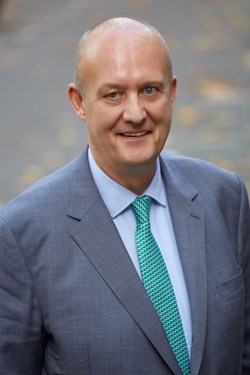Healthcare bodies urge action to address social care challenges outlined by Care Quality Commission

Care England, the representative body for independent providers of adult social care in England, is leading calls for urgent action to to be taken to address the findings outlined in the Care Quality Commission’s annual assessment of health care and social care in England.
Professor Martin Green OBE, Chief Executive of Care England, says: “The ‘gridlock’ which characterised the health and social care system last year has been aggravated by new pressures for care, including inflation, the cost of living and ongoing challenges with the workforce.
“Despite 70,000 new international workers in the care sector across 2022 – 2023, resulting in a net reduction of 13,000 vacancies, we have lost 57,000 domestic workers. This is not sustainable. Without central Government intervention, we may not be looking at gridlock next year, but a total impasse.”
The State of Care 2022/23, published today, is the CQC Quality Commission’s annual assessment of health care and social care in England.
The report revealed insufficient capacity in adult social care is continuing to contribute to delays in discharging people from hospital. Ongoing staffing and financial pressures (such as increased running costs and insufficient Local Authority fee uplifts) are having an impact on the quality of people’s care, with some at greater risk of not receiving the care they need.
Local authority budgets have failed to keep pace with rising costs and the increase in the number of people needing care.

The ADASS Spring Survey published earlier this year indicated that local authorities in England are starting from a £400m deficit, before they even look to address staffing, inflation and wider cost pressures across the adult social care sector.
The sector’s own analysis indicates an average gap between the Fair Cost of Care and the Local Authority fee rate of £144 per week for residential care and £101 per week for nursing care in England.
To combat the funding and workforce issues that are so prominent in the State of Care report, Care England has called for a number of solutions in Care For Our Future, including a fully-funded minimum £15 wage for care staff, and a £1,500 hospital discharge tariff.
Other key findings include:
- While occupancy rates have increased, the CQC’s register of adult social care services shows the number of registered beds has decreased by 0.6 per cent between July 2022 and July 2023.
- In 2022/23, the number of applications to deprive a person of their liberty increased to over 300,000, with only 19 per cent of standard applications completed within the statutory 21-day timeframe.
- Data shows that the proportion of care home residents who receive state-funded care increases as the levels of deprivation increase. In areas with the lowest levels of deprivation, just over two in five care home residents are state-funded whereas in areas with highest deprivation, four in five residents receive state-funded care.
- This correlates with the ‘Fair Cost of Care Report for Older People and Dementia’, published by LaingBuisson, which indicates that the North and Midlands have a lower proportion of self-funders contributing towards inequalities in the hours of care provided than the South.
- The numbers of autistic people and people with a learning disability in hospitals are still high – at the end of June 2023, there were 2,035 inpatients, over half of whom have been there for over two years.
Professor Green continued: “With a general election on the horizon, these concerns must not be lost. Social care must be seen as an essential part of national infrastructure.
“The social care sector is brimming with talent and provides essential support for our citizens. We need a government that understands the importance of social care and sets about creating an environment where it flourishes, rather than struggles.”
In response to the CQC State of Care report, Professor Sir Stephen Powis, National Medical Director for the NHS, commented that despite NHS staff facing an unprecedented combination of pressures last year, including a record 25.3 million A&E attendances, 14 million more GP appointments and tens of thousands more mental health appointments, staff have made “good progress” toward the aims of its recovery plans.
These, he said, include keeping the NHS on track to add 5,000 more core beds as part of its plans for urgent and emergency care for this winter, and delivering on its ambition to roll out 10,000 virtual ward beds.
However, as the CQC has stated, industrial action has had an impact that cannot be ignored. Professor Powis added: “Hundreds of thousands of routine appointments had to be rescheduled during the year this report covers, but despite this, hardworking staff continue to bring down the longest waits – latest data shows more patients were treated in August than the same month before the pandemic.”
Meanwhile Dr Jennifer Dixon, Chief Executive of the Health Foundation, commented that the report is further proof of the urgent need to invest in the NHS and social care workforce. She said: ‘The forthcoming spending review is an opportunity to drive long overdue action on workforce planning and supply.
“The government needs to invest in the training, recruitment and retention of NHS staff, while finding the extra funding needed to ensure more people can access high-quality social care. This will only be delivered if the sector can offer the pay, terms and conditions that enable staff recruitment and retention.”
Richard Kramer, Chief Executive of national disability charity Sense, which supports people with complex disabilities, said that the CQC report makes for “grim reading”, but sadly echoes things that the charity is currently seeing in the social care sector.
The charity, which runs a range of services including residential homes, is calling for a social care workforce strategy to sit alongside the NHS Long Term Workforce Plan. Sense research this year found that nearly a third of people with complex disabilities who receive social care experienced staff shortages over the previous 12 months.
Richard commented: “Too many disabled people are missing out on the care they need because there aren’t enough care workers with the right skills. We desperately need a social care workforce strategy that will ensure we can keep our talented, caring workforce in social care.
“At Sense, we are committed to providing the highest quality of care available to people with complex disabilities. We are calling on the Government to partner with us in that mission by urgently investing in social care with more funding and a workforce strategy.”


